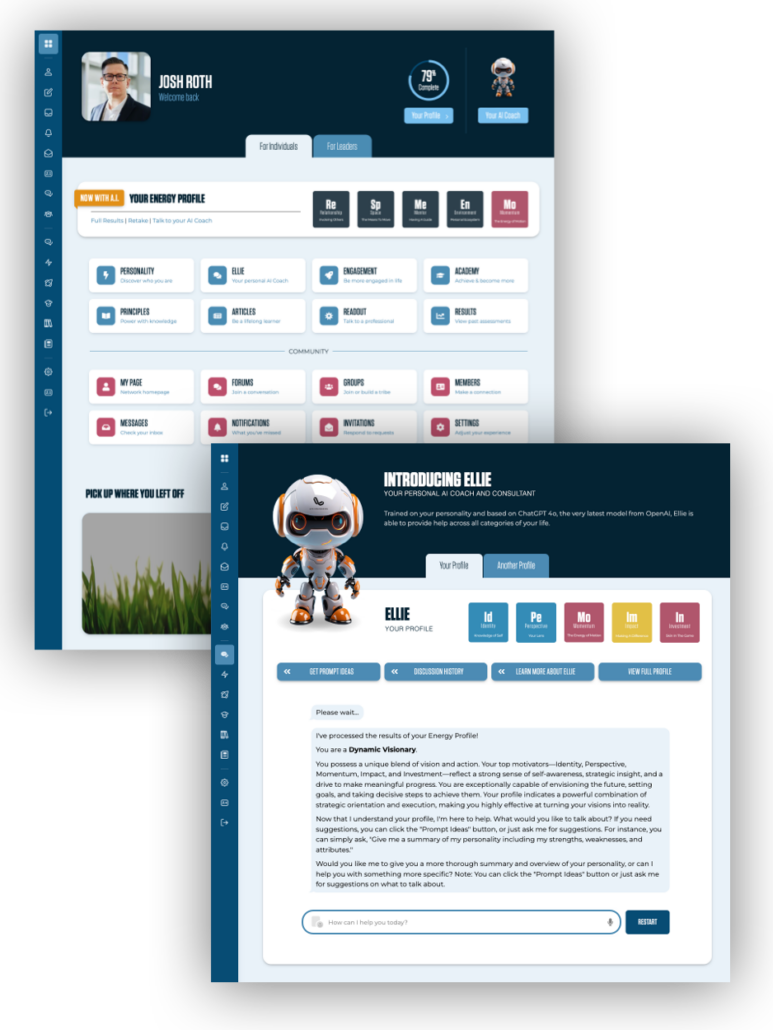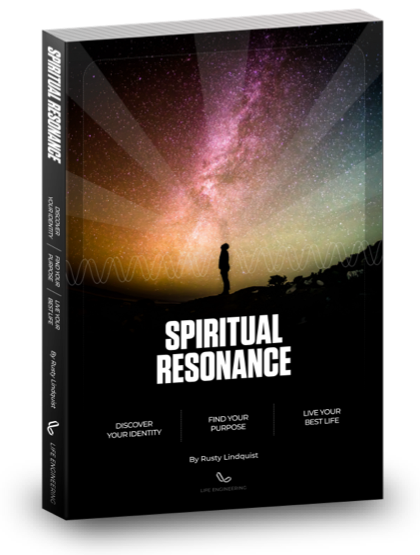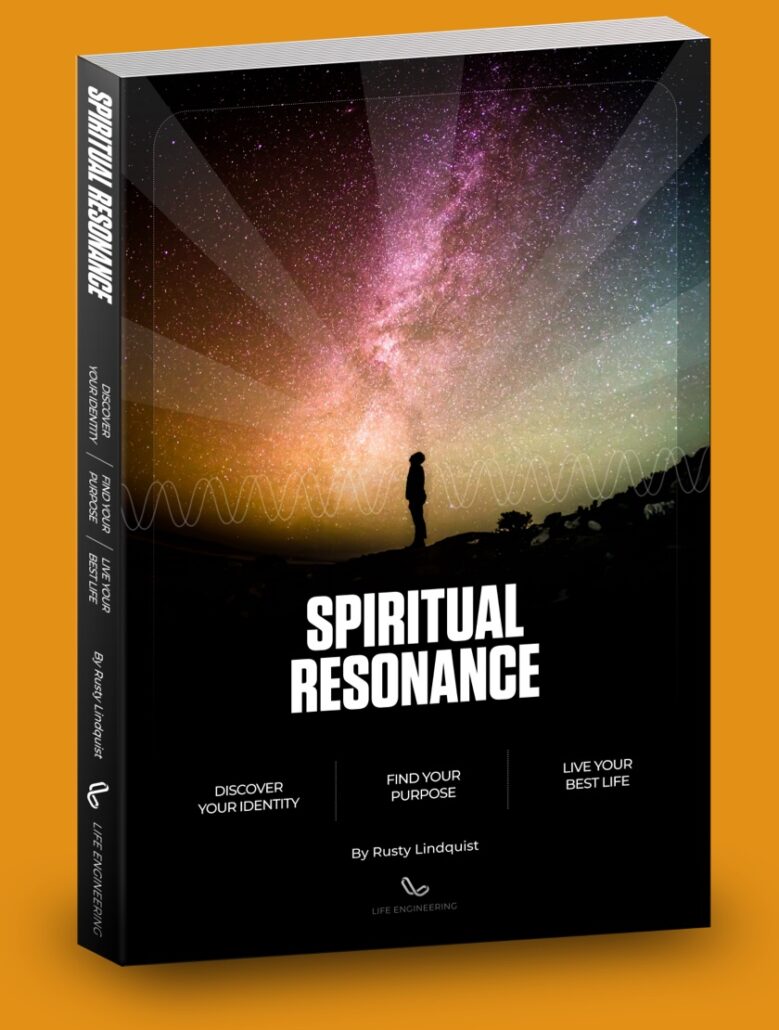Orient:
Perspective
The Lens You Choose to Look Through
academy
Lesson 1
INTRODUCTION
course objectives
- Recognize the lens I’m using to see myself and the world.
- Be aware of the stories I tell myself.
- Identify “perspective distortions” so I can limit their effects.
- Reshape my lens to reshape my life.
reflection activity
Perspective Pre-Assessment
Willingness to look at other perspectives or points of view is essential to see the world we live in with better clarity. The goal is not to change our perspective every time we encounter something new, but to be open to new perspectives when they are more useful or more accurate than our own. The following prompts will help you gauge how you relate to Perspective.
Before we begin our first learning lesson, take a moment and complete the Perspective Pre-Assessment below.
Activity: Perspective Pre-Assessment
Lesson 2
Picasso and Perspective
Pablo Picasso’s New Lens
Why do people spend time and energy to create art? Why paint a picture when a photo will show you the same scene with greater detail and less effort?
Maybe it is not always about seeing things as others do. Rather, it is about finding and experiencing a new perspective.
A New Perspective in New York
When Pablo Picasso began to experiment with the way he saw the world, he created a body of work that shows how perspective can allow us to completely change our experience.
As it was for him, seeing differently can be a powerful tool for all of us.
Three Lenses in Barcelona
When you see the world from your perspective it makes sense, but there is almost always more than one perspective at play.
Learning to see an idea from another’s perspective gives you the ability to see yourself and others more clearly, and as a result, live a more fulfilling and connected life.
Lesson 3
Perspective and the 16 Elements
Overview of the 16 Elements
The 16 Elements are fundamental ingredients for a successful life. They are organized into four pillars, each with four unique elements.
Each of these elements has been identified after extensive research in cognitive and behavioral psychology, and countless individuals around the world have used them to identify their priorities, choose objectives, and shape their Journey to Purpose.
Overview of the Orient Pillar
The Orient Pillar is comprised of four Elements: Perspective, Identity, Objective, and Plan.
Each is foundational in beginning your own Journey to Purpose as we start to examine the paradigms, frameworks, and mental models used to understand ourselves and the world around us.
Perspective in the Orient Pillar
Perspective, or the lens we use to see ourselves and the world, is the foundational element from which the other 16 flow.
Perspective is tied directly to our behaviors which in turn drive results. It’s a line from how we think to how we perform.
Overview of Perspective
Perspective is the combination of what we experience, what we believe, and how we approach the world from day to day. Our perspective shapes us and is directly tied to what we do and how well we do it.
Before we can shape our Journey to Purpose, we must become aware of our perspective. And in some cases, we may even need to change it.
reflection activity
The Story I Tell Myself
Another way to think of Perspective is “The Story I Tell Myself.” That story can either be empowering or limiting. Reflect on your experience with both kinds of stories as you answer the questions using the Assessment Activity below.
Activity: The Story I Tell Myself
Lesson 4
The 4 Rules
The 4 Rules of Perspective
If you want to actively manage your perspective rather than be managed by it, it helps to think of a lens. The lens can distort reality, influence outcomes, and affect the story we tell about ourselves and others.
Like a lens, Perspective is a tool that we can adjust or even replace.
Perspective – Rule 1
Perspective distorts, to a greater or lesser degree, what we’re really experiencing at any given moment. In fact, not a single human on this planet gets to enjoy an unfiltered view of reality.
Even widely accepted perspectives are still filtered through our senses, biases, and the story we tell ourselves.
Perspective – Rule 2
What happens when our perspective changes? In 1968, the Apollo 8 mission shared the first images of the earth with millions of people. Now, individuals across the globe could see the earth as something small and fragile against the endless backdrop of space.
Something so simple reframed the way many still interact with the planet today by inspiring efforts to conserve, innovate and take care of our natural resources.
Perspective – Rule 3
When we tell a story, it shapes our perspective. Have you ever given somebody an excuse or blamed yourself for a mistake? Those are self-defeating stories.
On the other hand, when the story we tell ourselves describes an inspiring future and focuses on our successes and potential, we create new beliefs and attitudes for the better. Either way, the story we tell ourselves most often is the most likely to come true.
Perspective – Rule 4
We choose our lens. The lens does not choose us. If you have ever bought a pair of glasses, you know that it’s up to you to seek out, try on, and keep what you choose.
Just like a pair of glasses, we own our perspective and we can change it.
Lesson 5
Taking Action
Learning How to Take Action
When we use Perspective as a tool for progress, we are looking to the past for growth, not failure. We look to the future for opportunity, not threats.
We focus on the whole picture rather than tiny puzzle pieces, and we actively reshape or replace our lens in order to reshape our life.
Look to the Past For Growth
Perspective allows us to look backward and review our progress. For some, the tendency is to focus on failures and mistakes.
But a more useful way to look at the past is to focus on successes and growth.
Look to the Future For Opportunity
Perspective allows us to look to the future and anticipate outcomes. When we focus on mistakes and failures in our past, we miss the opportunity to be open to new possibilities.
When thinking forward, look for opportunities rather than threats.
Pieces are Not Pictures
Have you ever put together a jigsaw puzzle? It’s nearly impossible to guess what the final picture will be if you start with only a jumble of pieces. It takes work to sort and fit each piece into place.
In life, the same principle is true. We cannot extract the whole picture from just a few pieces. Taking a wider perspective allows us to avoid assumptions, and instead learn helpful lessons from our past while looking for opportunities in the future.
Reshape Your Lens, Reshape Your Life
Can you shape your lens? Yes. Each of us can review the stories we tell ourselves and reshape them for good or bad.
It takes awareness and patience, but it is completely within our control.
Lesson 6
Conclusion
The Long-Term Consequences of Short-Term Things
We have the choice to take control of our perspectives or allow them to take control of us. When we are not deliberate about managing our perspectives, a bad day can easily become a bad week, then a bad month and so on.
On the other hand, actively managing our perspectives can help us turn a good day into a positive streak, day–in and day–out. By choosing your perspectives, taking stock of your successes, and looking forward to new opportunities, you have the power to shape your future.
reflection activity
Perspective Reflection
The story I tell myself is sometimes called my “narrative.” This story, which comes from many sources, may be empowering me to be the best I can be or limiting me in how I bring my unique talents, purpose and passion to the things I do.
Use the activity below to reflect on what you have learned about Perspective.
Activity: Perspective Reflection
We care deeply about helping you live your best life.
So much so, that I want to give you a free copy of my most recent book, Spiritual Resonance, to help you fully discover yourself and live authentically.
We’ve also created an assessment to help you discover your Identity, and have trained AI to understand and talk to you about your specific results!




Responses